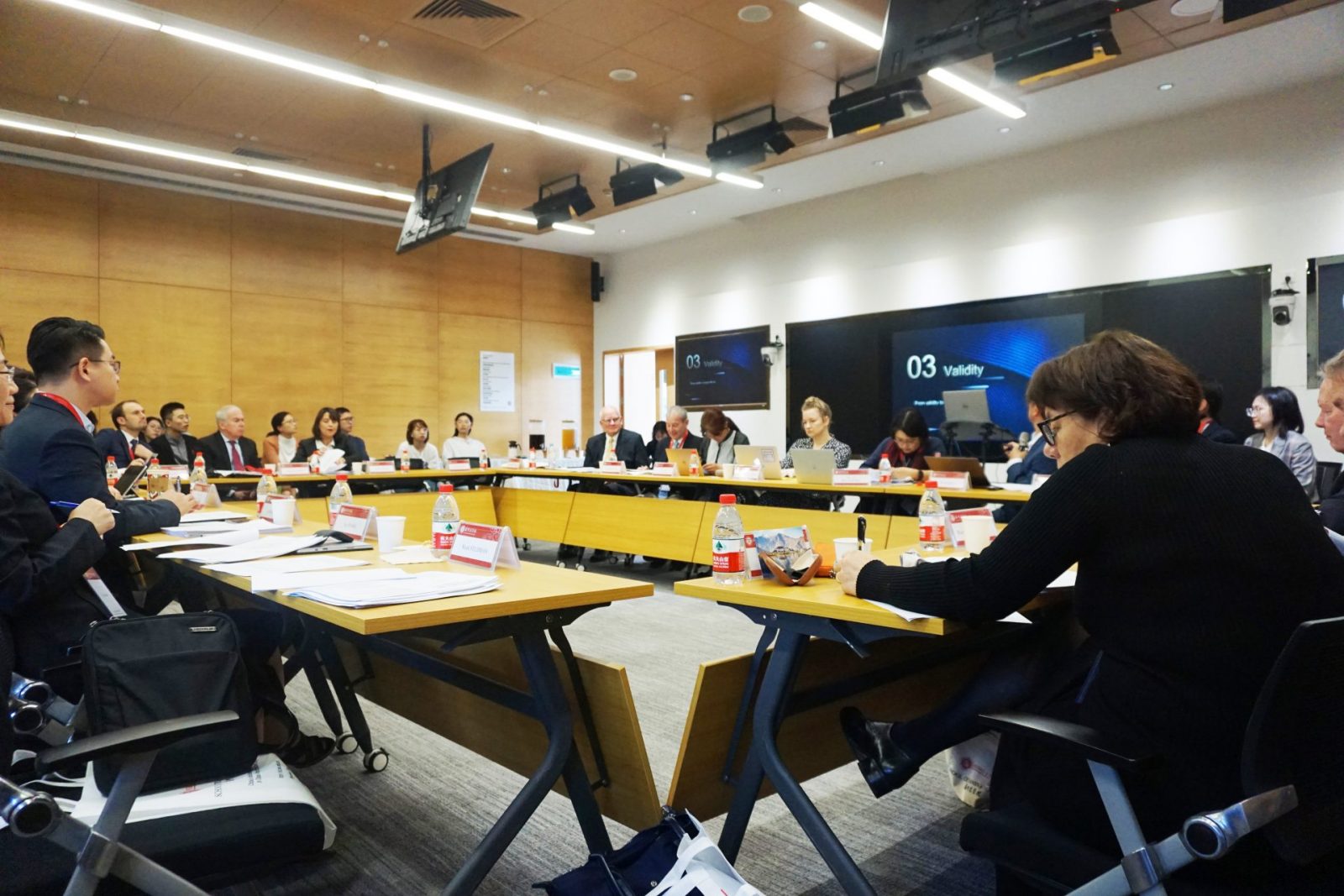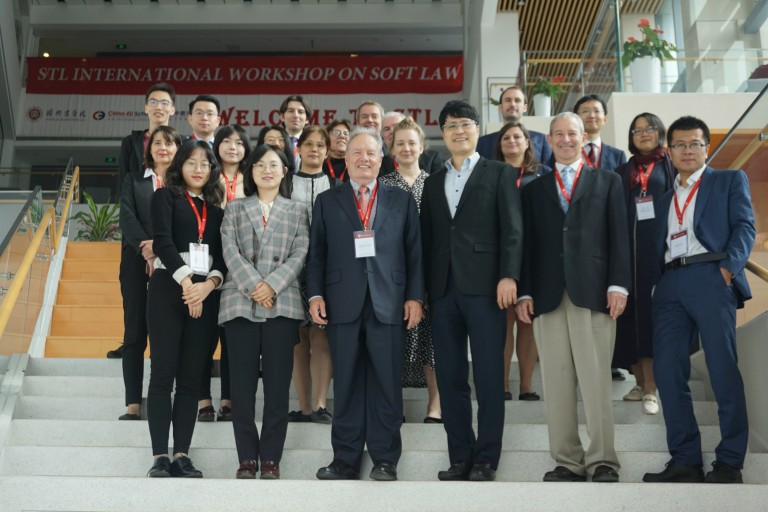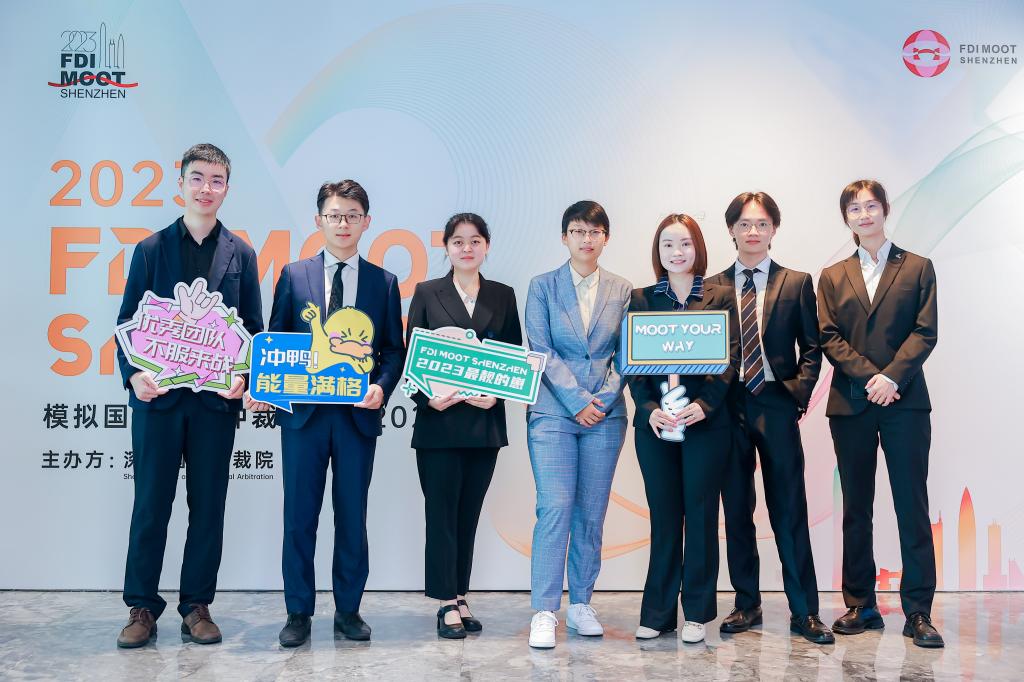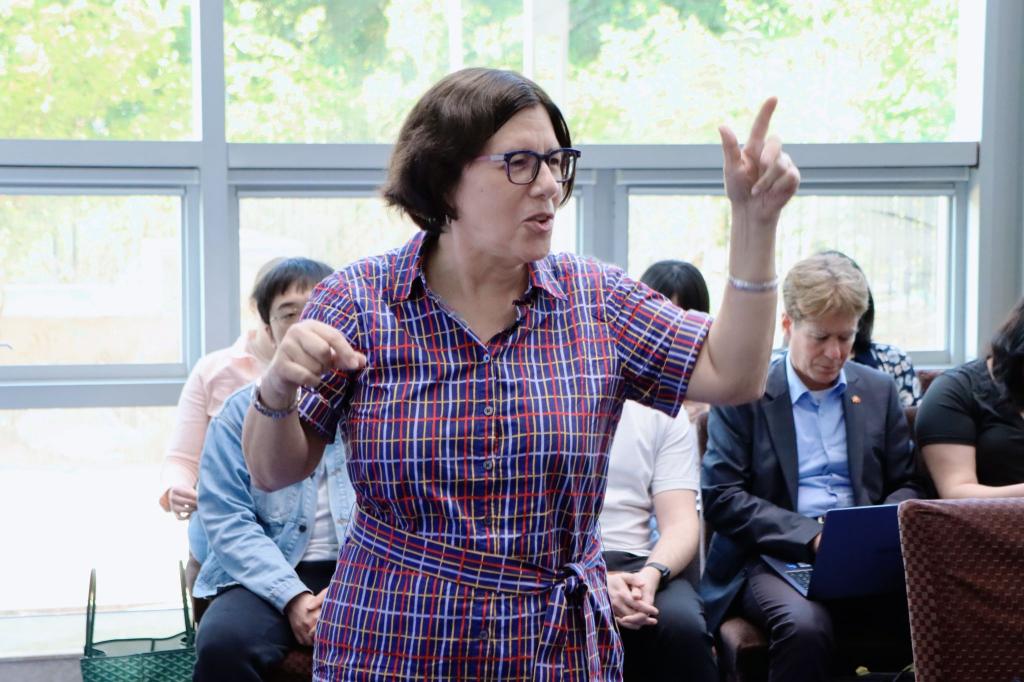Copyright © 2022 Peking University School of Transnational Law.

2019-11-15 Views: 1
On November 13, Peking University School of Transnational Law (STL) hosted an international workshop on soft law:The Use of Soft Law by National Courts and Public Authorities: An EU-China Comparison. The workshop was jointly organized by STL and China-EU School of Law at the China University of Political Science and Law. It brought together leading scholars, from China and abroad, to study the opportunities and challenges of soft law, and explore the application and innovation of soft law in the fields of finance, economics, environmental policy and public safety. The workshop was moderated by STL’s faculty while speakers included professors from University of Helsinki, University of Milano, Aix-Marseille University, Maastricht Univerisity, Beijing University of Aeronautics and Astronautics, and University of Macao.
 STL Dean Philip McConnaughay, Maastricht University Professor Mariolina Eliantonio, and STL Professors, JIN Zining and Francis Snyder, first delivered welcoming remarks expressing their gratitude to all the participants and introducing the workshop program.
STL Dean Philip McConnaughay, Maastricht University Professor Mariolina Eliantonio, and STL Professors, JIN Zining and Francis Snyder, first delivered welcoming remarks expressing their gratitude to all the participants and introducing the workshop program.
The workshop was divided into four sessions on the following themes: “Opportunities and Challenges of Soft Law,” “Use of Soft Law by Public Authorities in the Financial and Economic Fields,” “Use of Soft Law by Public Authorities in the Protection of Values Related to Environment and Public Health,” and “Soft Law and Standards for Legal Innovation.”
The first session was chaired by STL Assistant Professor MAO Shaowei. Emilia Korkea-Aho, Associate Professor at University of Helsinki and a visiting scholar at Yale University, first raised the question: “How to study soft law” and proposed three dichotomies to help answer that question: “doctrinal research” and “socio-legal research”, “qualitative research” and “quantitative research”, “historical research” and “comparative research.” Then she switched the question from “how to study soft law” to “why to study soft law”. Professor BI Honghai from Beijing University of Aeronautics and Astronautics gave an overview of soft law in China and put forward the question of “why soft law can be called ‘law’.” STL Professor HUANG Hui discussed the guiding cases as soft law in Chinese judicial practice, while STL Professor JIN Zining took environmental lawsuits as examples and explored the administrative “Opinion Letter” as soft law in PRC’s Courts. In the Q&A session, the students present actively proposed their own thoughts on the issues raised to the scholars.
STL Professor Douglas Levene chaired the second session. STL Professor Sang Yop Kang, cited the Korean National Pension Service (NPS) as an example illustrating how shareholder activism functions as soft law. From the perspective of comparative law, Nathalie Rubio, a scholar at Aix-Marseille University, explored the use of EU soft law by Member States in the fields of EU competition and State Aids Law. STL Professor Duncan Alford, used the operation of Supervisory Colleges in EU banking supervision as a case study of how “soft law” became “hard law”. Jacopo Alberti, Professor from University of Milano, introduced the soft law of the European Securities and Markets Authority (ESMA) and explored the reception of EU financial soft law in Italy and other EU Member States.
The third session was chaired by STL Professor Thomas Yunlong Man. Professor Eliantonio explored the EU environmental soft law and its effects at the national level from a comparative perspective. STL Assistant Professor Stephen Minas conducted an analysis of the current situation and explored the role of soft law in making finance environmentally sustainable in the EU and China. STL Assistant Professor CAO Fei discussed soft Law and the medical duty of care from the perspective of Chinese practitioners. Du Li, Assistant Professor at University of Macao, introduced the development of genetic technology and genetic research in China, and analyzed the role of soft law in promoting responsible and sustainable research and clinical practice.
The fourth session was chaired by STL Assistant Professor Joy Xiang. The author ofSupreme People’s Court Monitor,STL Distinguished Scholar in Residence, Susan Finder, presented her observations and comments on China’s evolving soft case law system. STL Professor Mark Feldman, explored the development of soft law in a transnational context by tackling the G20 principles for Quality Infrastructure Investment and the Green Investment Principles for the Belt and Road. Rostam Neuwirth, Professor at University of Macau, also a visiting professor at STL, referred to the BRICS International Rule of Law Forum and analyzed the soft law nature of the treaties, as well as other materials produced by the BRICS Summit Meetings.
Maastricht Univerisity Professor Mariolina Eliantonio, and STL Professor Francis Snyder, delivered the closing speech. Professor Eliantonio summarized the content of the workshop and expressed her expectations for the development of soft law research while Professor Snyder concluded by once again thanking all participants. He hoped that the seminar would serve as an inspiring and rewarding experience that would allow the participants as well as the audience to productively engage the ever-growing field of soft law.

June 29, 2024
June 20, 2024
June 20, 2024

June 20, 2024

June 19, 2024